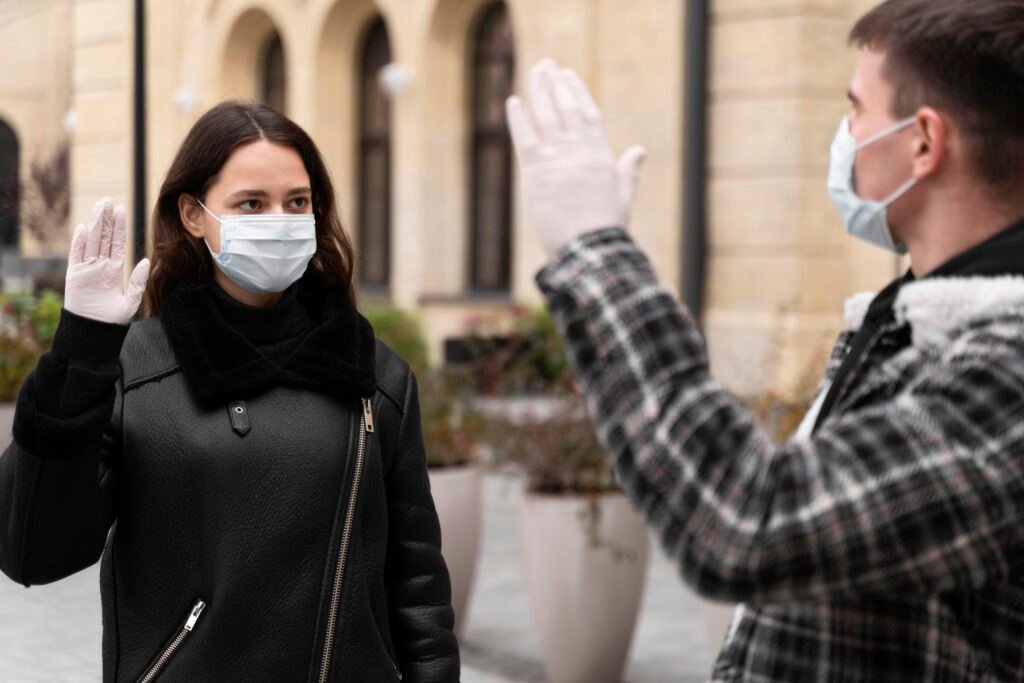The state of Bihar, grappling with a significant surge in COVID-19 cases, has announced a series of stringent restrictions, effectively placing the state under a lockdown. This move comes as healthcare infrastructure faces immense pressure and the test positivity rate climbs to alarming levels. The state government, led by Chief Minister Nitish Kumar, has emphasized that these measures are essential to break the chain of transmission and prevent a full-blown public health crisis. This article provides a comprehensive overview of the current lockdown situation in Bihar, detailing the new guidelines, their implications, and what residents can expect in the coming weeks.
Heading 1: The Trigger Behind the Lockdown Decision
The decision to impose a strict lockdown was not taken lightly but was deemed necessary due to a catastrophic rise in COVID-19 infections across both urban and rural Bihar. Over the past few weeks, the state has consistently reported tens of thousands of new cases daily, pushing the active caseload to a record high. Hospitals in major cities like Patna, Muzaffarpur, and Gaya are reporting critical shortages of oxygen beds, ICU beds, and life-saving medicines. The test positivity rate—the percentage of tests that come back positive—has soared well above 10% in most districts, indicating widespread community transmission. This alarming data, coupled with the increasing pressure on frontline health workers, forced the state administration to act swiftly to avoid a complete collapse of the medical system.
Heading 2: Official Lockdown Duration and Curfew Hours
The lockdown is officially termed as “COVID-19 Restrictions” and is currently in effect. While an initial period is announced, the government has stated that the situation will be reviewed weekly, and the restrictions could be extended based on the prevailing pandemic conditions. The core of the lockdown is a strict curfew that is in place 24 hours a day, 7 days a week. However, a limited window for essential activities is provided each day, typically in the morning (for example, from 6:00 AM to 10:00 AM), allowing residents to purchase groceries, vegetables, medicines, and other absolute necessities. Outside of these designated hours, movement is heavily restricted and permitted only for exempted personnel and emergencies.
Heading 3: Detailed List of What’s Allowed and What’s Closed
Understanding the specifics of the guidelines is crucial for every resident. The restrictions are comprehensive and aim to minimize all non-essential movement.
What is CLOSED:
-
All shops, markets, and commercial establishments must remain shut. Only those selling essential items like groceries, dairy, fruits, vegetables, and medicines are permitted to operate during the designated morning hours.
-
All private offices are required to close. Work From Home (WFH) is mandated wherever possible.
-
All industrial units are closed, except those involved in the manufacturing of essential commodities, medical equipment, pharmaceuticals, and those requiring continuous process plants.
-
All forms of public transport, including buses, autos, e-rickshaws, and taxis, are suspended.
-
All educational institutions, including schools, colleges, coaching centers, and libraries, are closed.
-
All places of worship, parks, gyms, swimming pools, salons, and restaurants (except for home delivery) are closed.
What is ALLOWED:
-
Essential services such as hospitals, clinics, pharmacies, and diagnostic centers remain fully operational.
-
Banks, insurance offices, and ATMs can operate with minimal staff.
-
Print and electronic media are allowed.
-
Telecommunications, internet services, broadcasting, and cable services are exempt.
-
Petrol pumps, LPG gas services, and power generation and transmission services will function.
-
Delivery of all essential goods, including food, pharmaceuticals, and medical equipment, via e-commerce is permitted.
-
Individuals involved in permitted services and those needing medical assistance are allowed to move with a valid ID proof.
Heading 4: Economic Impact and Government Relief Measures
The lockdown, while a public health necessity, delivers a severe blow to Bihar’s economy, particularly affecting daily wage laborers, small shopkeepers, and the unorganized sector. The sudden halt in economic activity threatens livelihoods and could lead to a significant rise in unemployment and economic distress. Recognizing this, the state government is under pressure to announce a relief package. There is speculation about possible financial aid, free rations through the Public Distribution System (PDS), and measures to support vulnerable populations. The effectiveness and scope of these relief measures will be critical in mitigating the humanitarian crisis that often accompanies a strict lockdown.
Heading 5: Public Reaction and Challenges in Enforcement
The public reaction to the lockdown has been mixed. While many citizens understand the gravity of the health crisis and support the government’s decision, there is widespread anxiety about earning a living and accessing basic services. The initial announcement led to crowded markets during the essential hours, ironically increasing the risk of transmission. A major challenge for the administration is enforcing the lockdown uniformly, especially in dense urban clusters and remote rural areas where awareness and policing are limited. Ensuring that people do not travel inter-district and that social gatherings, particularly weddings with limited attendance, adhere to strict protocols will be a key test for the authorities.
Frequently Asked Questions (FAQ)
Q1: Can I travel to the airport or railway station during the lockdown?
Yes, travel to airports, railway stations, and inter-state bus terminals is allowed for those with a confirmed ticket or valid booking. Travel should happen via private vehicle or authorized taxi services following COVID protocols.
Q2: Are private vehicles allowed on the road?
No, the use of private vehicles is strictly prohibited except for medical emergencies or for availing essential services during the permitted hours. A valid reason and ID proof must be carried.
Q3: What are the penalties for violating the lockdown rules?
Those found violating the lockdown orders will be penalized under the relevant sections of the Indian Penal Code (IPC) and the Disaster Management Act. This can include substantial fines and even imprisonment.
Q4: Will home delivery of food from restaurants like Swiggy and Zomato continue?
Yes, home delivery of food from restaurants is explicitly permitted. However, restaurants cannot offer dine-in services, and delivery personnel must carry a valid ID from their service provider.
Q5: How can I get a COVID vaccine during the lockdown?
Vaccination centers are considered essential health services and will remain operational. You can travel to and from a vaccination center with your registered appointment details on the Co-WIN app or SMS.
Conclusion
The lockdown in Bihar is a desperate but necessary measure to combat a vicious wave of the coronavirus. Its success hinges not just on strict enforcement by the administration but, more importantly, on responsible cooperation from the public. Adhering to the guidelines, staying home, practicing impeccable hygiene, and getting vaccinated at the earliest opportunity are the only ways to navigate through this challenging period. The coming weeks will be difficult, but a collective effort is the only path to flattening the curve, saving lives, and eventually emerging from this crisis. Residents are urged to rely only on official government channels and reputable news sources for updates to avoid misinformation.

